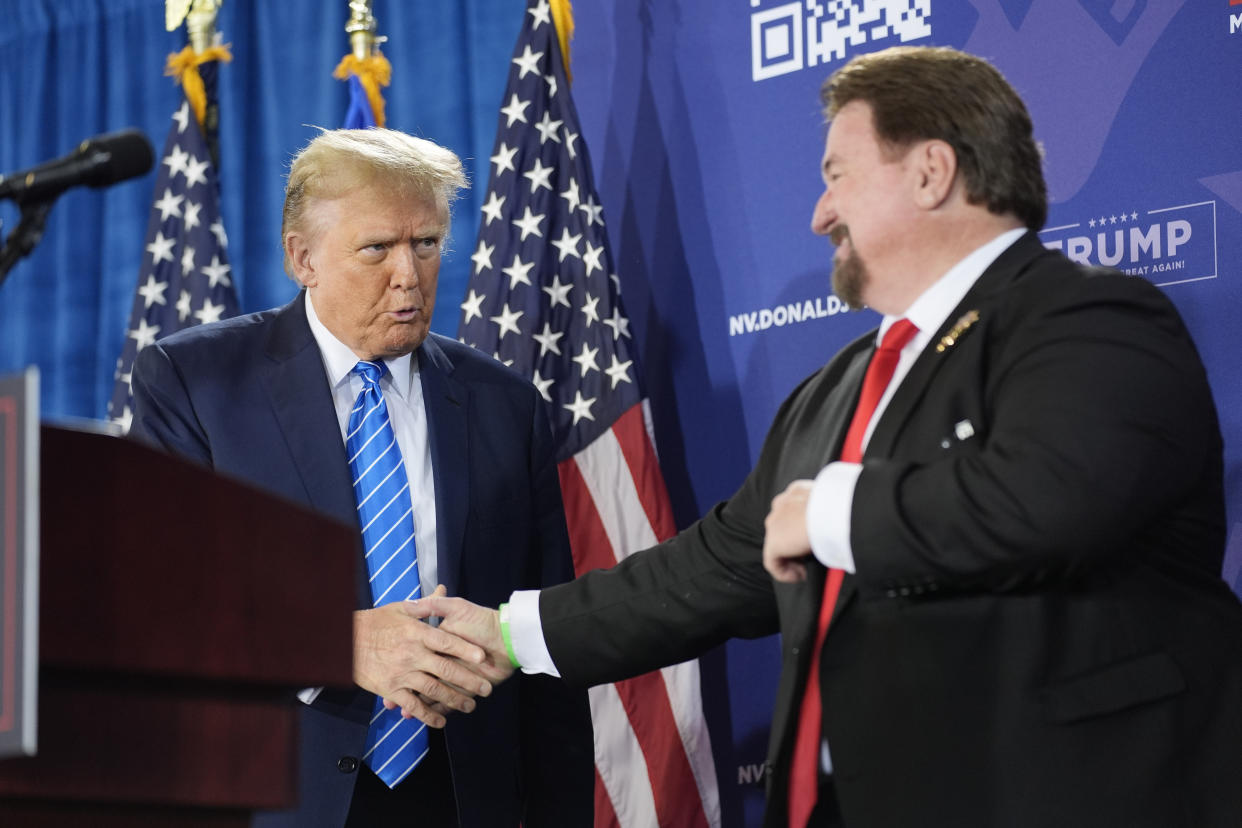Nevada Attorney General Appeals to State High Court in Effort to Revive Fake Electors Case
LAS VEGAS (AP) — The Nevada Attorney General, Aaron Ford, is taking decisive action by appealing to the state Supreme Court to reinstate the indictments against six Republican officials. These individuals are accused of submitting a fraudulent certificate to Congress, falsely declaring Donald Trump as the victor of Nevada in the contentious 2020 presidential election. This case is part of a broader alleged conspiracy that spanned seven battleground states, aimed at overturning the election results in favor of Trump, who ultimately lost to Democrat Joe Biden.
The situation has become increasingly complex following a recent ruling by Clark County District Court Judge Mary Kay Holthus. On Friday night, Judge Holthus reaffirmed her previous decision that Las Vegas was not the appropriate venue for the case, leading to the dismissal of the charges against the defendants. This ruling has left the future of the so-called fake electors case in a precarious position.
In a statement released on Saturday, a spokesperson for Attorney General Ford confirmed that the appeal was filed promptly after the judge's written order. “We remain confident in our case and look forward to bringing these individuals to justice and holding them accountable for their actions,” the statement emphasized. The defendants include prominent figures such as state GOP chairman Michael McDonald, Clark County GOP chairman Jesse Law, and several other party members who were indicted by a grand jury in Las Vegas last December, just before the expiration of a three-year statute of limitations.
Each defendant faces serious charges, including offering a false instrument for filing and uttering a forged instrument, both of which are felonies that could result in prison sentences of up to four or five years. Monti Levy, representing one of the defendants, expressed confidence in Judge Holthus's decision, asserting that the motion to dismiss will likely be upheld.
The defense has argued that the case should not have been brought in Las Vegas, a Democratic stronghold, but rather in a northern Nevada city where the alleged crimes took place. In contrast, Ford’s office contends that the nature of the crimes transcends county lines, making Las Vegas a valid venue for the prosecution.
As of now, it remains uncertain whether the Nevada Supreme Court has scheduled oral arguments regarding the appeal. The court's clerk has not responded to inquiries for further information.
In the backdrop of this legal battle, it is important to note that Trump lost the state of Nevada by over 30,000 votes. An investigation led by former Nevada Secretary of State Barbara Cegavske, a Republican, found no credible evidence supporting claims of widespread voter fraud in the state, further complicating the narrative surrounding the fake electors case.
As the appeal unfolds, the implications of this case could resonate beyond Nevada, reflecting the ongoing national discourse surrounding election integrity and the legal ramifications of attempts to undermine democratic processes.
